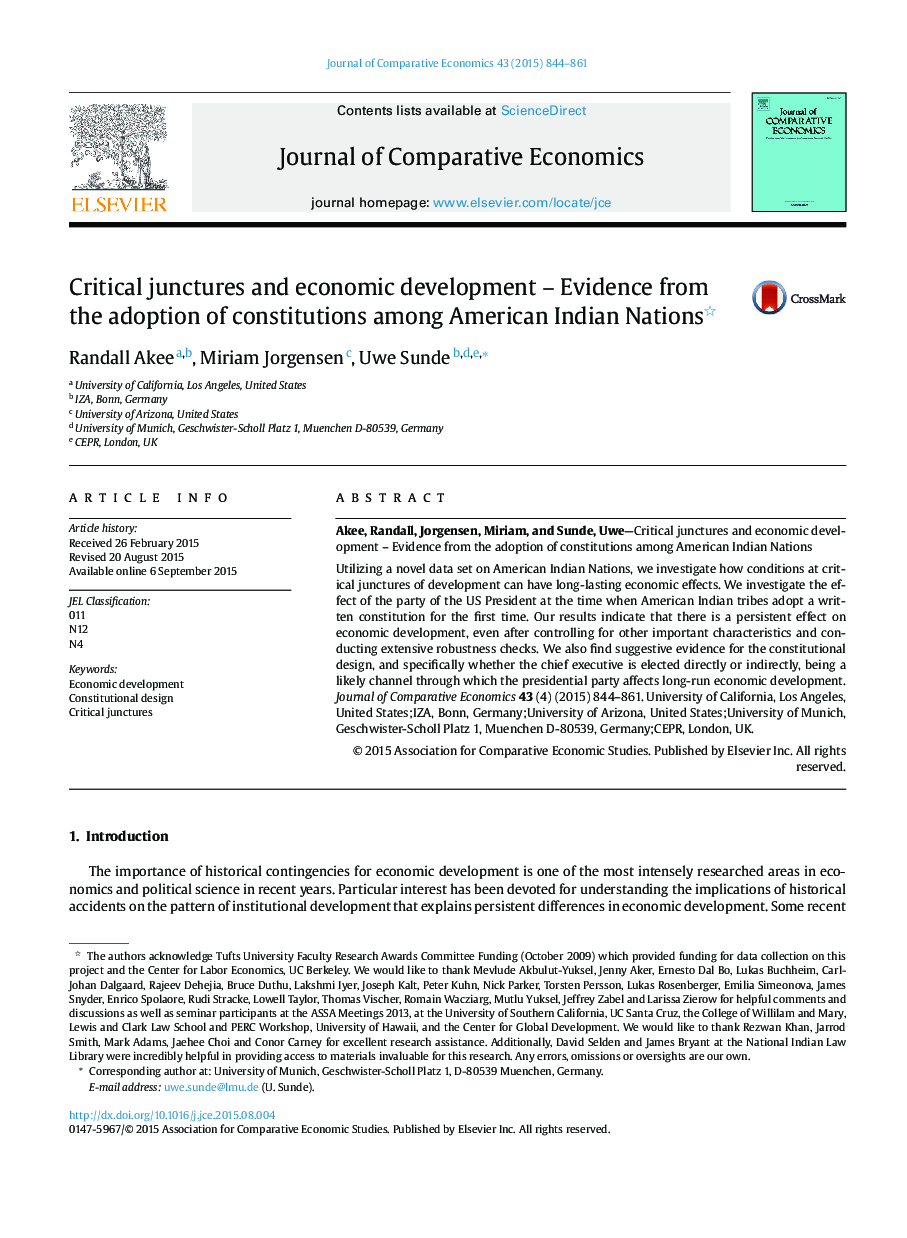| Article ID | Journal | Published Year | Pages | File Type |
|---|---|---|---|---|
| 5092120 | Journal of Comparative Economics | 2015 | 18 Pages |
Abstract
Utilizing a novel data set on American Indian Nations, we investigate how conditions at critical junctures of development can have long-lasting economic effects. We investigate the effect of the party of the US President at the time when American Indian tribes adopt a written constitution for the first time. Our results indicate that there is a persistent effect on economic development, even after controlling for other important characteristics and conducting extensive robustness checks. We also find suggestive evidence for the constitutional design, and specifically whether the chief executive is elected directly or indirectly, being a likely channel through which the presidential party affects long-run economic development.
Related Topics
Social Sciences and Humanities
Economics, Econometrics and Finance
Economics and Econometrics
Authors
Randall Akee, Miriam Jorgensen, Uwe Sunde,
